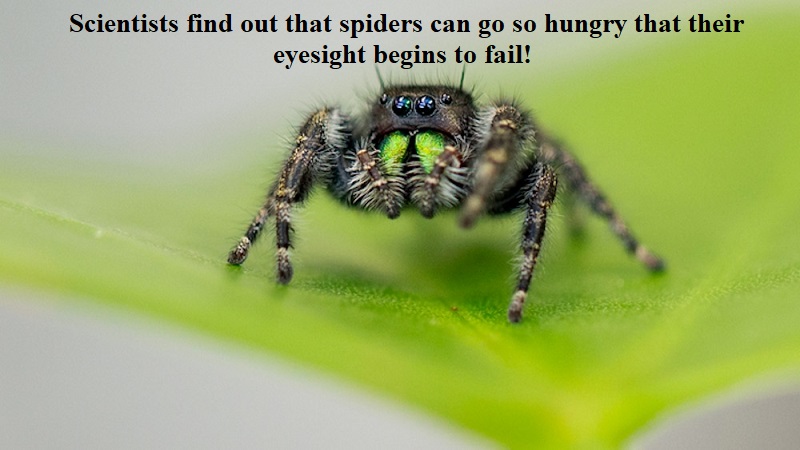
We all know what it feels like to be ‘hangry’, that state of irritability caused by hunger. Even a light snack can make a significant difference. However, in our competitive drive to succeed in life, we may neglect to eat properly, and while we may push through our hunger, we might be more consistent with our meals if the lack of one had a visible effect.
But the adverse effects of food deprivation on living beings extend beyond this. Scientists have discovered that spiders can become so starved that their eyesight begins to deteriorate!
According to a report in Sciencealert, researchers from the University of Cincinnati witnessed this incredible phenomenon. The spider in question was a bold jumping spider (Phidippus Audax) that has light-sensitive photoreceptor cells in its eyes that it uses to catch prey.
Scientists have observed that when the spider receives fewer nutrients, it loses these photoreceptors. Biologist Elke Buschbeck from the University of Cincinnati explains that photoreceptors are energetically costly, and it’s challenging to meet their energy demands. She states, “If you deprive them of nutrition, the system fails. It’s the functional equivalent of the macula in our eyes.”
To confirm their observations, the researchers used a customised ophthalmoscope to study retinal damage in nine nutrient-deprived spiders and compared them to twelve control spiders. The results can be useful in understanding vision loss in humans as well.
Biologist Annette Stowasser from the University of Cincinnati clarifies that carefully designed studies are required to identify the specific nutrients involved in this process and that it may depend on environmental conditions and other factors before any conclusions can be drawn about how this might inform treatments for people.
This research, published in the scientific journal Vision Research, has shown that the degeneration of photoreceptors in spider’s eyes is similar to age-related macular degeneration (AMD) in humans.
A study in The Lancet in 2014 reported that 8.7 per cent of the world’s population suffers from some form of AMD, which leads to a significant amount of money being spent on healthcare.

Post Your Comments